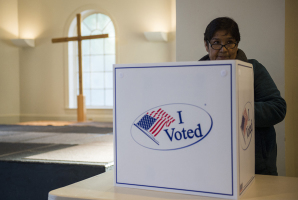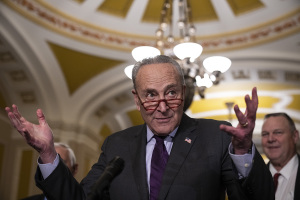Appeals Court Backs Va. Partial-Birth Abortion Ban
A federal appeals court upheld Virginia's ban on partial-birth abortion, reversing an earlier ruling that had declared it unconstitutional.
Judge J. Harvie Wilkinson of the 4th U.S. Circuit of Appeals wrote in his opinion, "The fact is that we – civilized people – are retreating to the haven of our Constitution to justify dismembering a partly born child and crushing its skull. Surely centuries hence, people will look back on this gruesome practice done in the name of fundamental law by a society of high achievement. And they will shudder."
"A partially born child is among the weakest, most helpless beings in our midst and on that account exerts a special claim on our protection," Wilkinson added.
In a 6-5 vote on Wednesday, the court ruled the Virginia Act – which prohibits killing a human infant who has been born alive – constitutional.
Alliance Defense Fund Senior Counsel Jordan Lorence commented earlier, "No one should be allowed to decide that an innocent life is worthless. Virginia has legitimately chosen to protect innocent life from a terrible procedure, and the court was right to uphold Virginia's law."
The partial-birth abortion ban was initially struck down by a 4th Circuit panel. The Supreme Court ordered the panel to reexamine its decision when it upheld the federal Partial Birth Abortion Ban Act two years ago. In 2008, after review, the panel again found the ban to be unconstitutional.
The entire 4th Circuit court was then asked to hear the case.
Opponents of the ban claimed the state law defined the term "partial birth infanticide" "so broadly" that it would ban even the safest and most common second trimester method of abortion, namely the dilation and evacuation method, thus exposing all doctors who perform standard D&Es to prosecution, conviction, and imprisonment. They also claimed the ban failed to include an exception to protect the mother's health.
But in its decision, the appeals court said the law specifically exempts the standard D&E procedure and provides "sufficient clarity" as to what conduct is prohibited, and it also adequately protects women's health.
The court also noted that to hold the ban as unconstitutional for all circumstances "based on the possible rare circumstance presented...is not appropriate under any standard for facial challenges."




























